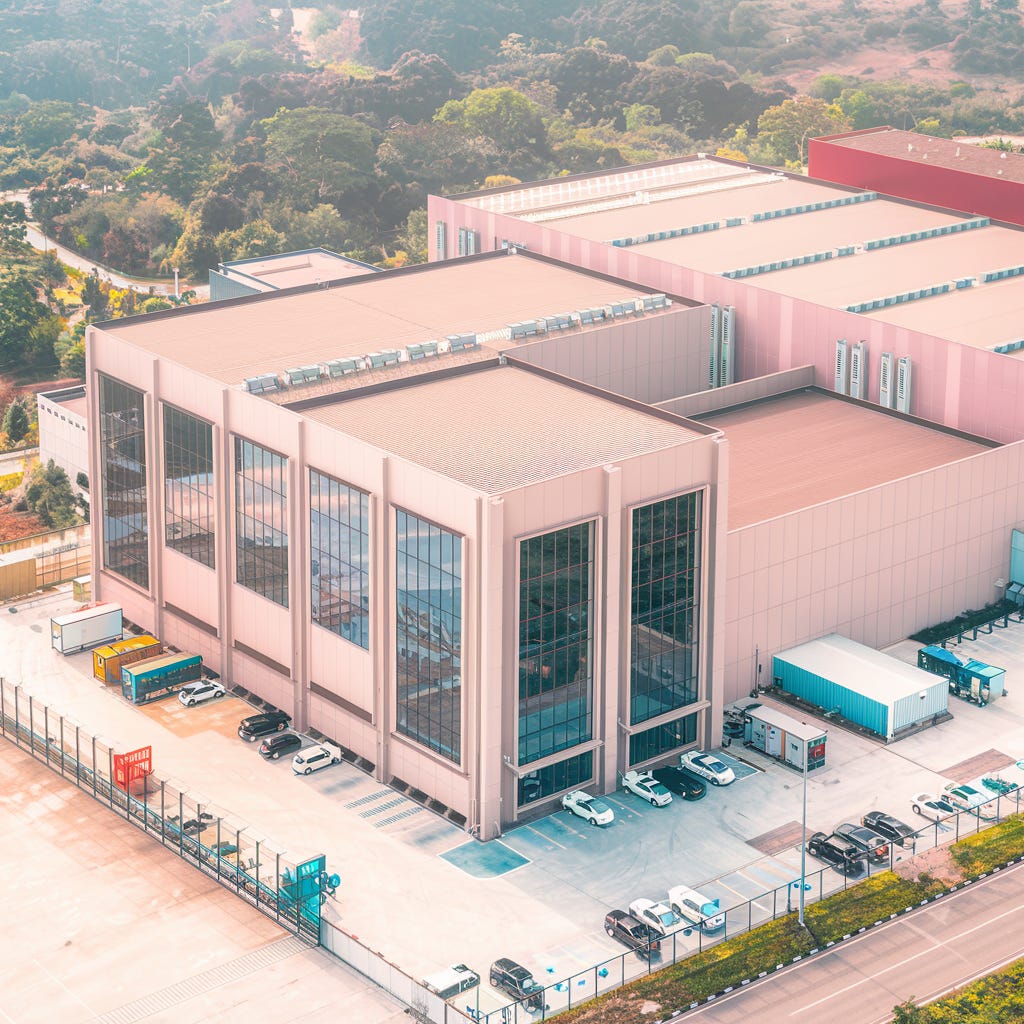Why Political Risk is Becoming a Constraint for Data Center Investors
The AI era has turned data centers into geopolitical battlegrounds. For investors, navigating this terrain is no longer optional.
Welcome to Global Data Center Hub. Join 1500+ investors, operators, and innovators reading to stay ahead of the latest trends in the data center sector in developed and emerging markets globally.
From Asset Class to National Asset
The global data center sector has undergone a silent reclassification.
Once treated as a specialized real estate play, data centers are now strategic geopolitical assets. They’re no longer just warehouses for data, they’re AI factories: power-hungry, security-sensitive, and politically entangled at every level.
This transformation has elevated political and geopolitical risk from a footnote in diligence memos to the central factor shaping returns.
In the U.S., $64 billion in data center projects have been blocked or delayed due to local political opposition. Across Europe, data centers face moratoria tied to grid capacity, land use, and sustainability metrics. And in Asia-Pacific, subsea cables and site selection are now influenced by national security doctrine.
This isn’t an edge case. This is the new center of gravity.
And in Europe, even GDPR-compliant projects in Frankfurt and Amsterdam are being slowed by fierce local opposition and strict regulatory enforcement.
The 3 Tiers of Political Risk You Can’t Ignore
To survive and win in this new era, investors must analyze risk across three tightly interwoven tiers:
Transnational Risk (Geopolitical): U.S.-China tech decoupling, sanctions, trade barriers, and state-sponsored cyberwarfare are reshaping global markets. Supply chains are fragmenting, and compute has become a sovereign weapon.
National Risk (Regulatory & Sovereignty): Over 100 countries now enforce data localization mandates. Laws like the UK’s NSIA and U.S. DOJ rules are reshaping who can own, operate, or even access digital infrastructure. Compliance regimes like GDPR and NIS-2 are driving up costs.
Local/Subnational Risk (Permitting & Politics): Community backlash is now bipartisan, coordinated, and growing. Permitting has become politicized. Grid resentment is rising. In key U.S. states, local governments are revoking by-right approvals and debating curtailment laws.
Navigating Political Volatility: 5 Core Moves
1. Political Risk Due Diligence Underwrite political exposure the same way you underwrite grid or lease risk. Evaluate data laws, ownership restrictions, foreign screening triggers, and permitting speed. Use a structured framework that captures sovereign, regulatory, and municipal risk in every deal.
2. Compliance as an Asset Strategy A GDPR-compliant site in Frankfurt or a PIPL-compliant asset in Shanghai now commands a premium. Sovereign cloud, federated AI, and zero-trust designs aren’t IT choices—they’re value drivers and barriers to entry.
3. Resilient Structuring Partnerships with local entities in high-risk jurisdictions, redundant footprints across sovereign zones, and political risk insurance are critical. Risk needs to be priced, diversified, and transferred where possible.
4. Community-Centered Engagement Investors must replace the old "jobs and innovation" pitch with a more credible message: tax revenue, energy upgrades, and ratepayer protection. The narrative must be local, specific, and defensible.
5. Power-Politics Feedback Awareness Speed-to-power has become the defining constraint. Public backlash over grid strain is driving calls for rate increases, cost-sharing mandates, and operational curtailment. Power access is no longer a technical bottleneck—it’s a political flashpoint.
You’re Not Buying Land. You’re Negotiating with a State.
Every data center investment now includes an implicit political bargain.
In a world where compute is a sovereign asset, investors are negotiating simultaneously with national governments, local communities, and global adversaries.
Returns will be determined not just by latency and load, but by the investor's ability to read political risk like market risk, price it into deals, and structure around it.
The winners in this new game won’t just be well-capitalized.
They’ll be geopolitically fluent.
Because in this era, data centers aren’t neutral infrastructure.
They are sovereign terrain.

